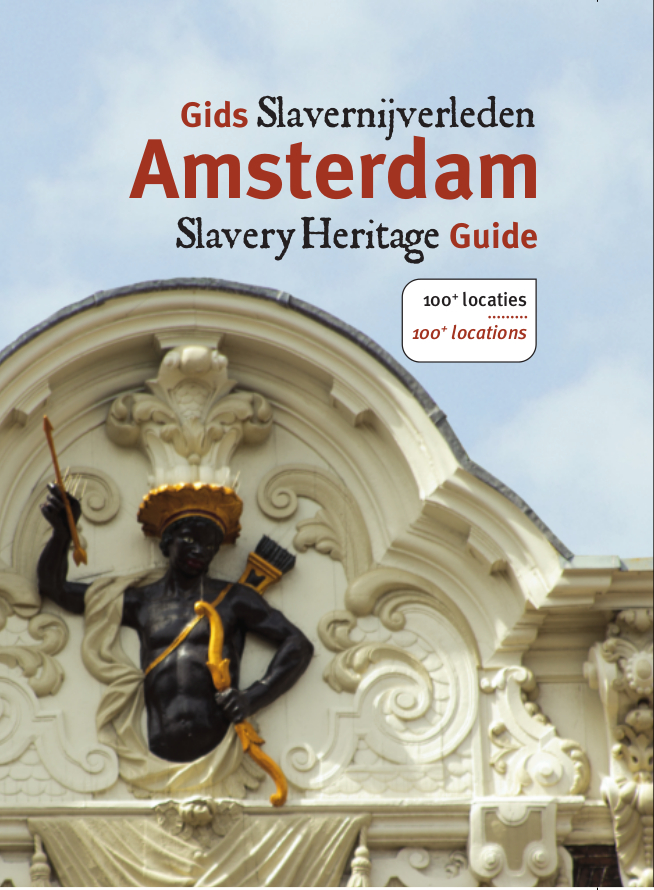Amsterdam Slavery Heritage Guide

The Amsterdam Slavery Heritage Guide is a walking guide to Amsterdam that focuses on the history of slavery in the city. The guide, published in 2014, is part of the VU University ‘Mapping Slavery Project’ which also covers Utrecht and Haarlem.
As it notes in the forward, little is taught in Dutch schools and known generally about the history of slavery and the slave trade in the Netherlands. The book opens with an overview of the history of slavery in the Netherlands, as well as the Dutch overseas holdings. It focuses on four overall themes: Trade and profit, black in the city, resistance and abolitionism, and museums and archives.
The book starts with a fold out map, showing 115 different locations that it discusses in further detail in the rest of the book. Though it doesn’t highlight a specific walking route, most of the locations are in the city centre and it’s fairly easy to create your own route. It’s a small book and easy to carry during your walking tour. Each number on the map gets a page or two, with images, to describe the location and its history.
Popular Amsterdam locations are featured, from the palace on the Dam to the Nieuwe Kerk. But obscure locations are also included, like the two busts of Moors on a building on the Herengracht. Even without walking a route, the book is filled with lots of interesting tidbits about history. For example, the official residence of the city’s mayor was once home to slave trader Paulus Godin.
The entire book is published in both Dutch and English. This is useful, but occasionally it creates a confusing layout which makes it hard to find the texts in the language of your choice. The book also uses a number of photos which are without captions and thus leave the reader wondering who the people are and what they were doing to warrant inclusion.
Overall, however, the book is immensely informative and easy to use.
Buy this book
Thank you for donating to DutchNews.nl.
We could not provide the Dutch News service, and keep it free of charge, without the generous support of our readers. Your donations allow us to report on issues you tell us matter, and provide you with a summary of the most important Dutch news each day.
Make a donation